During her residency at G.A.S. Lagos, Senegal-based G.A.S. Fellow, Laeïla Adjovi embarked on a research project focused on orisha spirituality, with a particular emphasis on Yemoja, the revered water deity in Yorubaland (called Yemaya or Aflekete in Cuba) and her connection to Yoruba culture both locally and abroad. Her ongoing transdisciplinary doctorate project titled The Roads of Yemoja examines how Yemoja survived the horrors of the middle passage and attempts at cultural annihilation to become venerated on both sides of the Atlantic. Throughout her month-long residency, Laeïla collected documentation, conducted readings, and organized interviews with scholars and practitioners of Ifa spirituality.
Laeila was part of the 2022 West African cohort of G.A.S. Fellows. Her residency was supported by the generous support of Still Earth Holdings, and ran through April 2023.
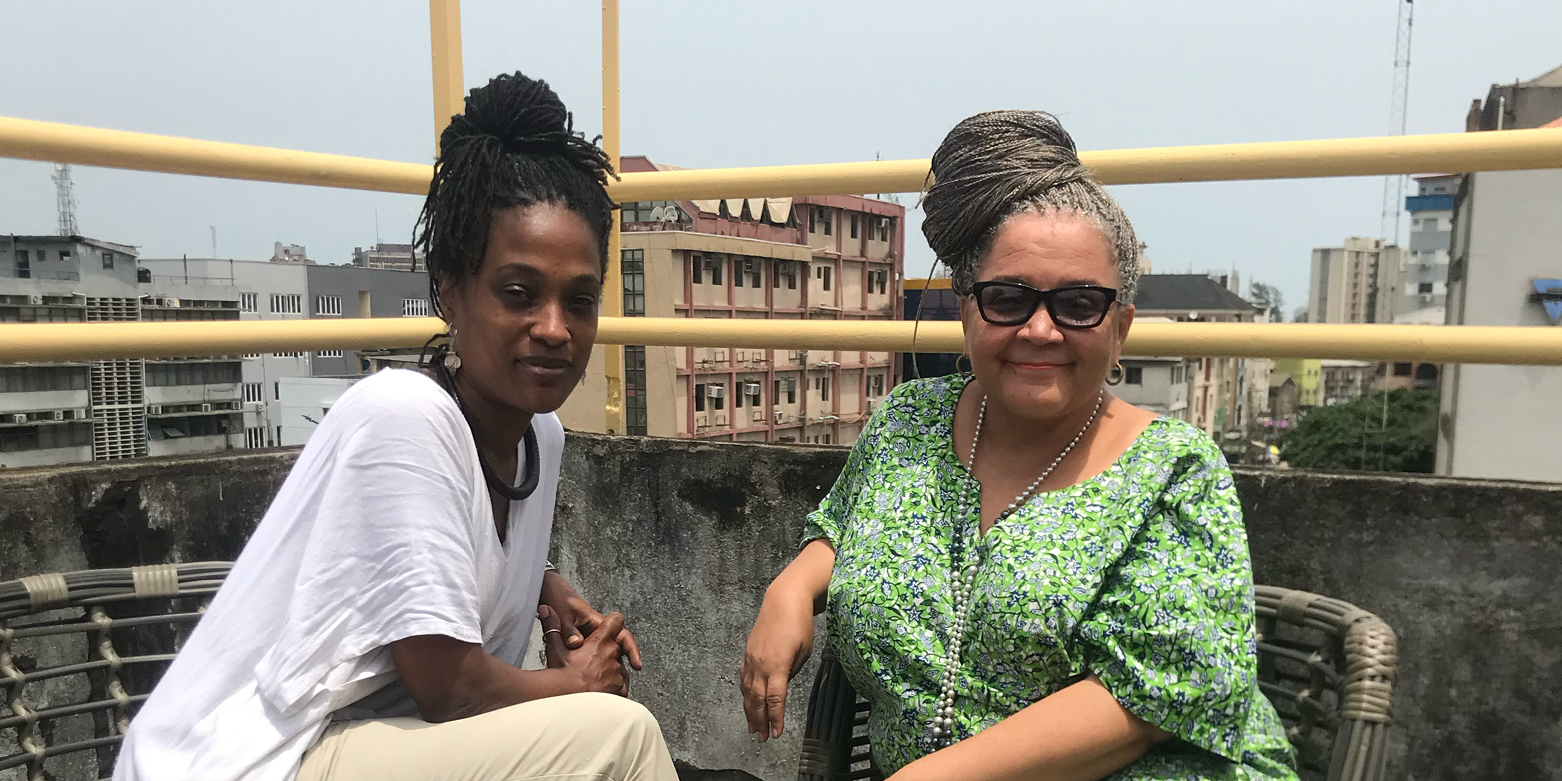
Leila Adjovi with Aduke Gomez, an integral member of the Afro-Brazilian community in Lagos, and descendant of returnee freed slaves to Lagos.
As part of her fieldwork, Laeïla followed leads provided by Yoruba scholar Kola Tubosun, which led her to Ibadan. It was there that she had the privilege of meeting Professor Kola Owolabi, an expert from the Center for Yoruba Language Engineering at Ibadan University. The professor's insights on research methodology, data collection, and data analysis proved to be invaluable.
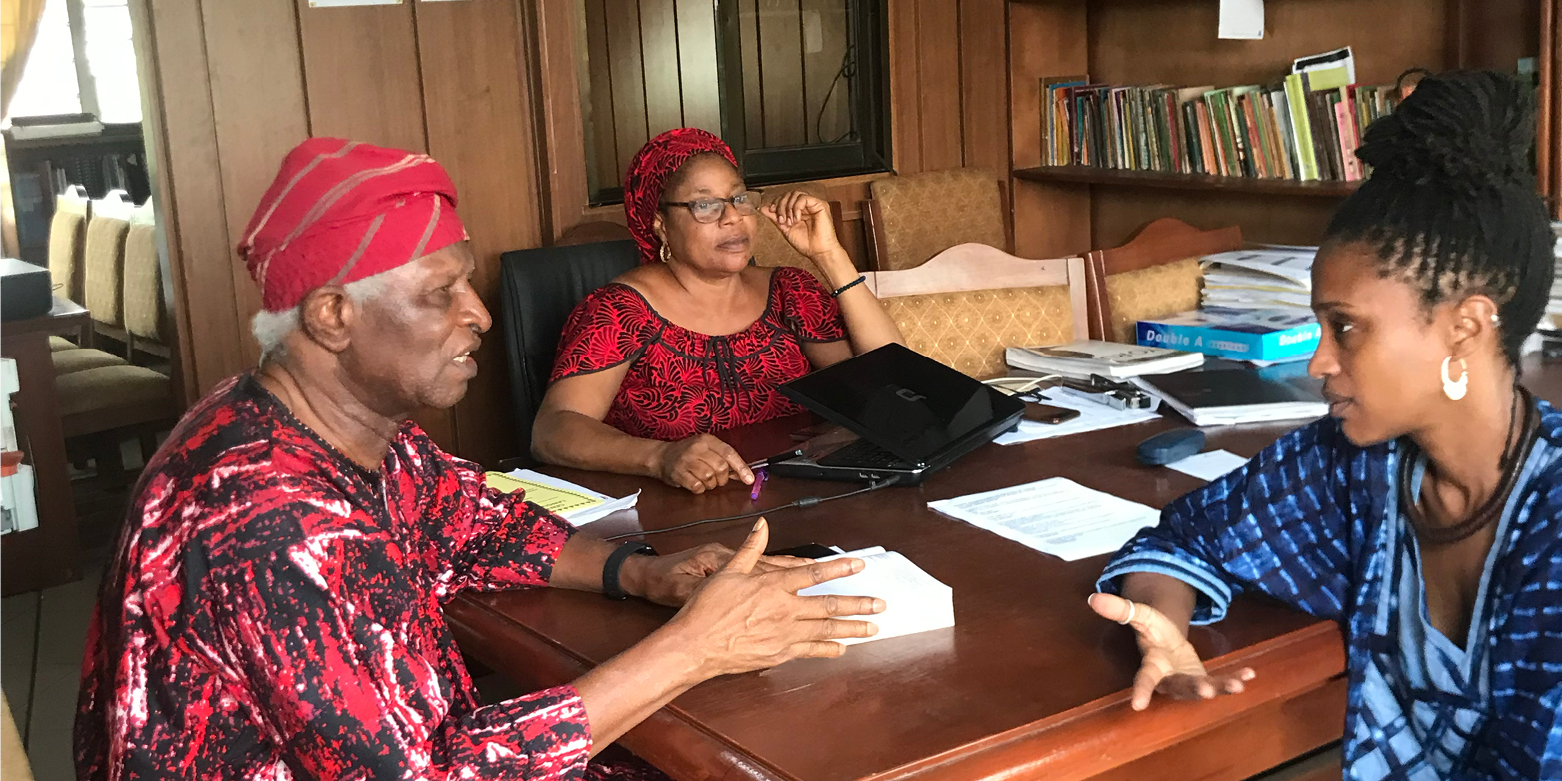 Prof. Owolabi, from the Centre for Yoruba language engineering (CYLE) Ibadan, and Labake Owolabi, secretary of CYLE, during a meeting at the University of Ibadan.
Prof. Owolabi, from the Centre for Yoruba language engineering (CYLE) Ibadan, and Labake Owolabi, secretary of CYLE, during a meeting at the University of Ibadan.
Additionally, Professor Owolabi directed Laeïla to a Babalawo on the outskirts of the city. This encounter aimed to deepen her understanding of the specific odus (chapters of the Ifa corpus) that mention Yemoja and to uncover more about the history of Ibadan, including the origins of the street named after the river deity, "Popo Yemoja."
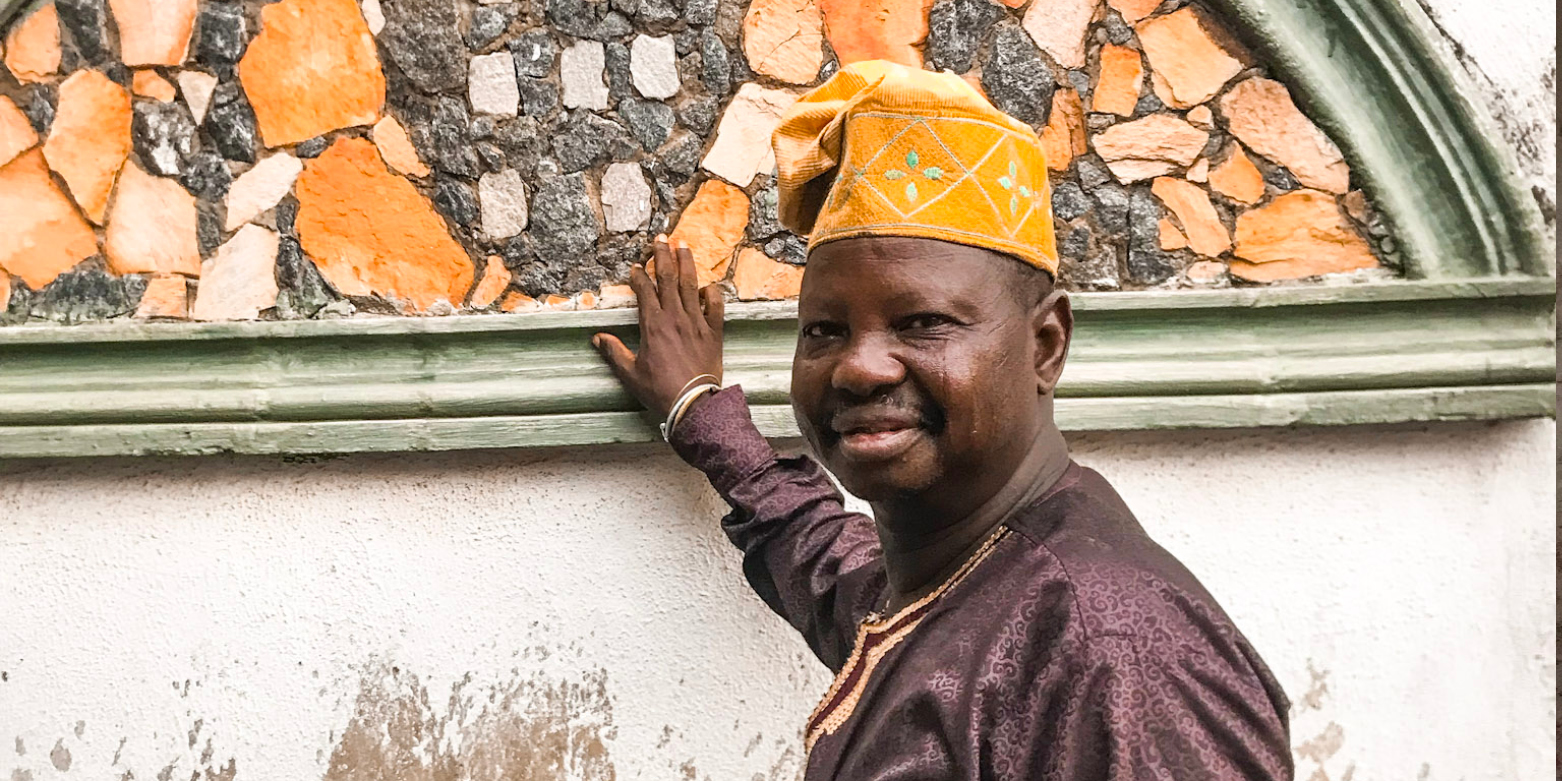 Babalawo Ifalere is the founder of Ijo Orunmila Atunwase Apogunpote Idingbe Temple in Ibadan. Laeïla interviewed him about the Ifa corpus and the place of Yemoja in the Yoruba pantheon.
Babalawo Ifalere is the founder of Ijo Orunmila Atunwase Apogunpote Idingbe Temple in Ibadan. Laeïla interviewed him about the Ifa corpus and the place of Yemoja in the Yoruba pantheon.
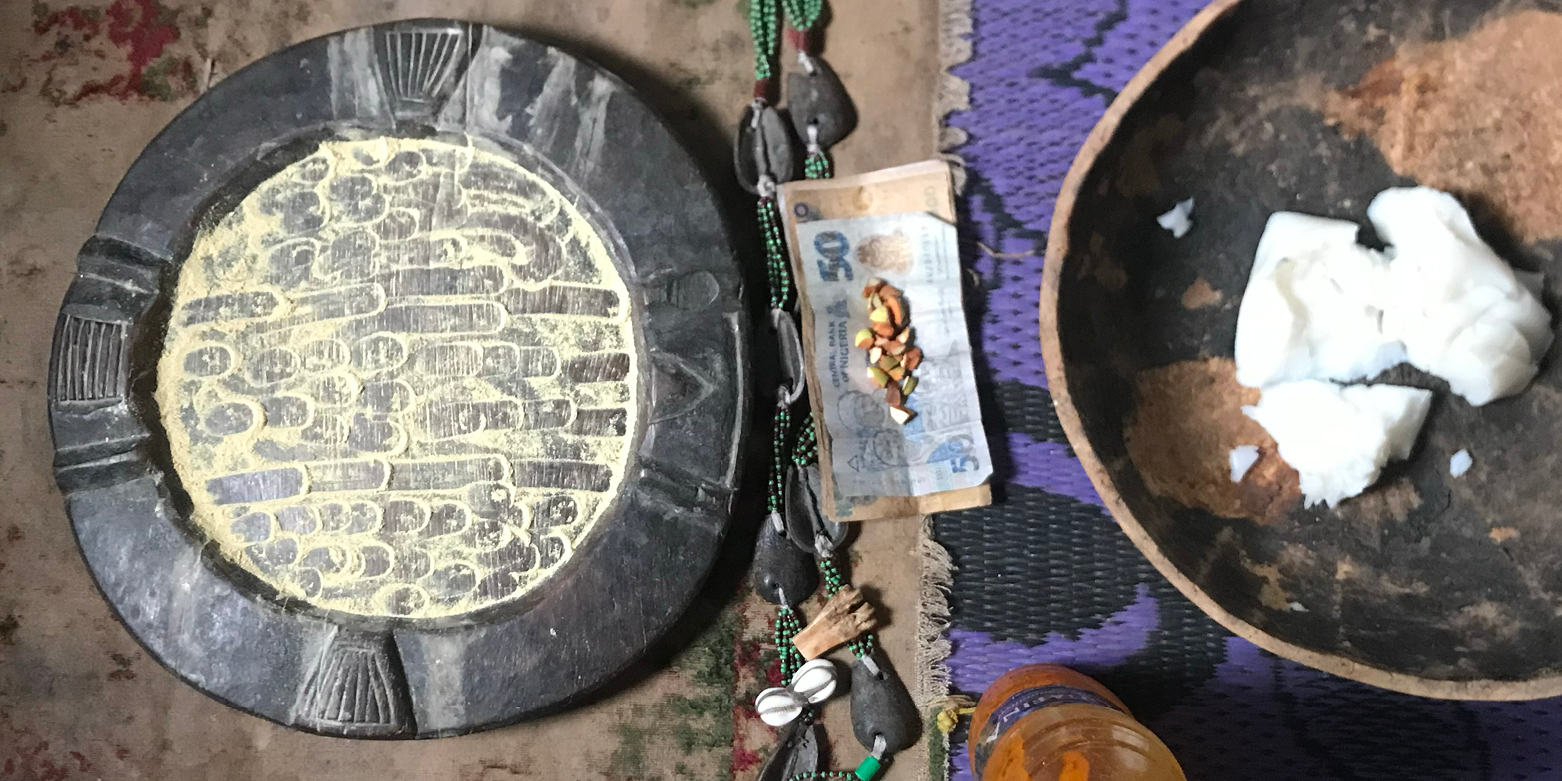 In the temple of Babalawo Ifalere, the Opon Ifa ( Ifa tray) was ready for use for a ritual for a worshipper that called in from Abuja.
In the temple of Babalawo Ifalere, the Opon Ifa ( Ifa tray) was ready for use for a ritual for a worshipper that called in from Abuja.
Another notable interviewee was Professor Sola Olorunyomi, a renowned expert in cultural media studies who had spent time in Cuba. Their thought-provoking conversation delved into the topics of memory, oblivion, and the transformations that occurred as Yoruba culture and spirituality crossed the Atlantic.
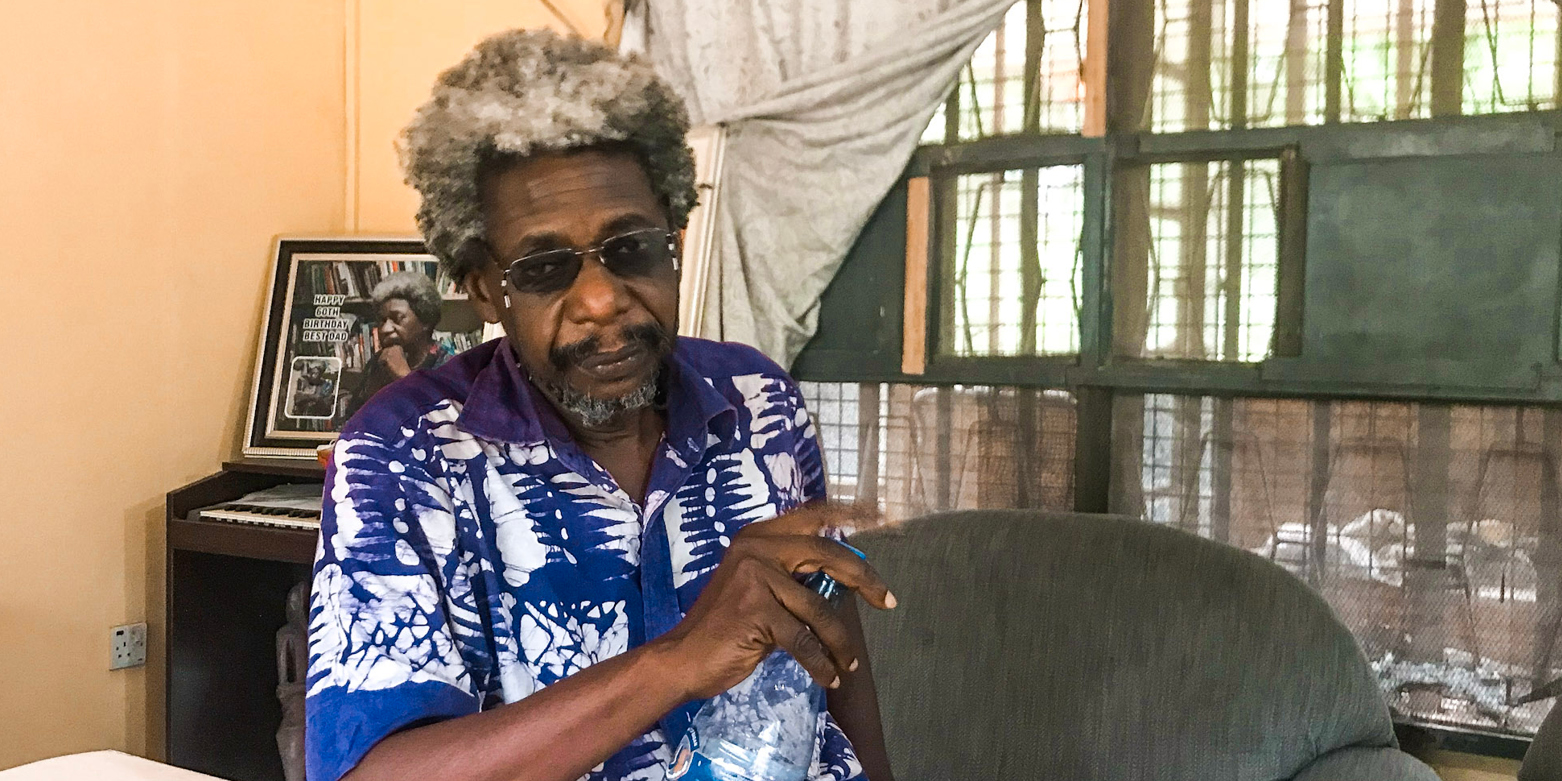 The conversation with Pr Sola Olorunyomi, professor of cultural media studies at Ibadan University revolved around the Yoruba heritage in Cuba and Brazil.
The conversation with Pr Sola Olorunyomi, professor of cultural media studies at Ibadan University revolved around the Yoruba heritage in Cuba and Brazil.
While investigating the decline of the Oyo Empire, which played a crucial role in the forced migration of tens of thousands of Yoruba people to the Americas, Laeïla also sought traces of Cuban returnees and Afro-Cuban-led events in the national archives.
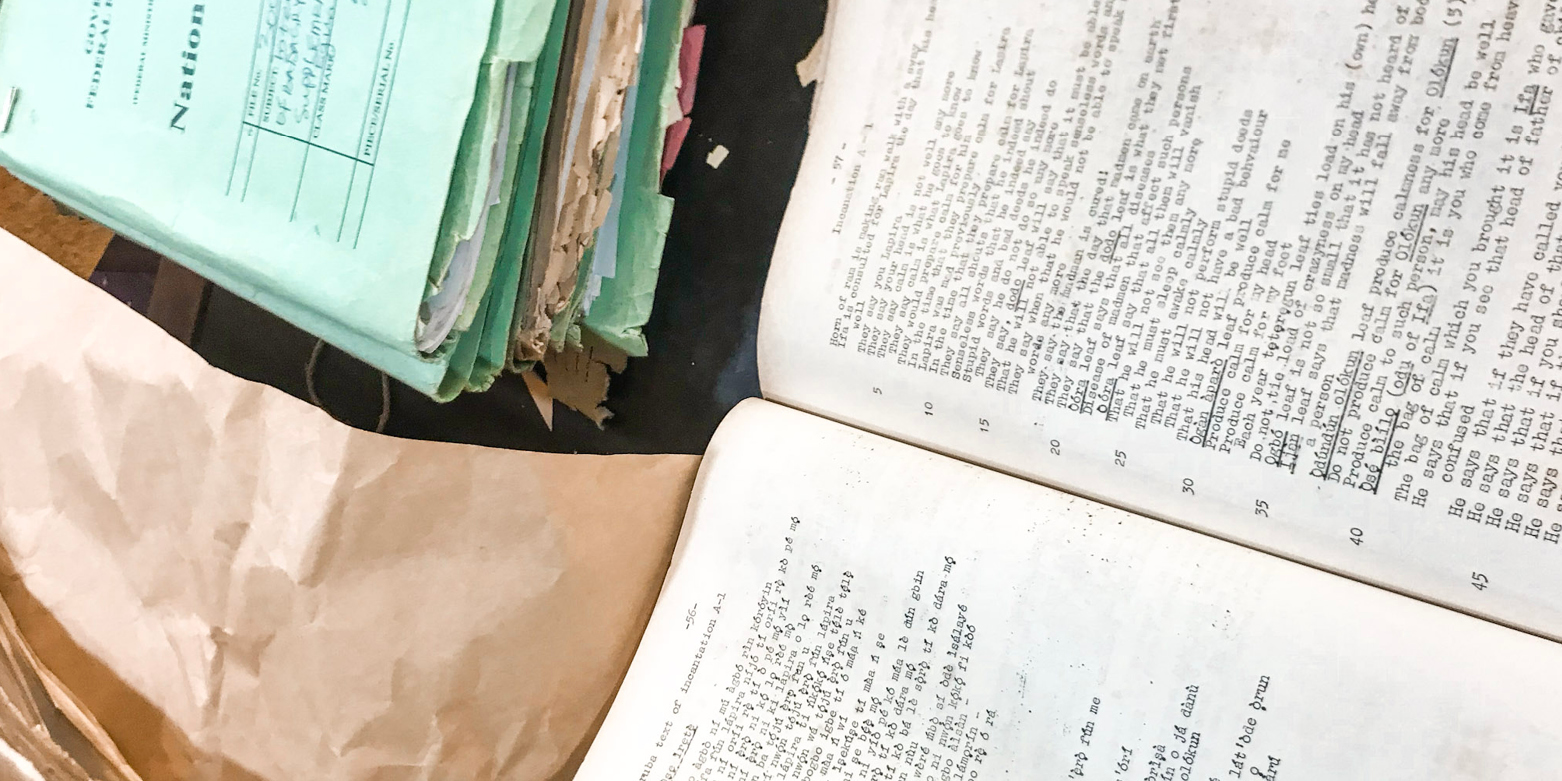 Although there was no trace of the presence of Cuban returnees in Ibadan in the national archives, some interesting elements popped up on Ifa spirituality and the power of spoken word within the worship.
Although there was no trace of the presence of Cuban returnees in Ibadan in the national archives, some interesting elements popped up on Ifa spirituality and the power of spoken word within the worship.
Following her time in Ibadan, Laeïla travelled to Osogbo to participate in a dye workshop. In Cuba, she had learned of the connection between Yemoja and indigo plants and dye. In Osogbo, she discovered the utilization of specific designs in creating Adire textiles as a tribute to water deities.
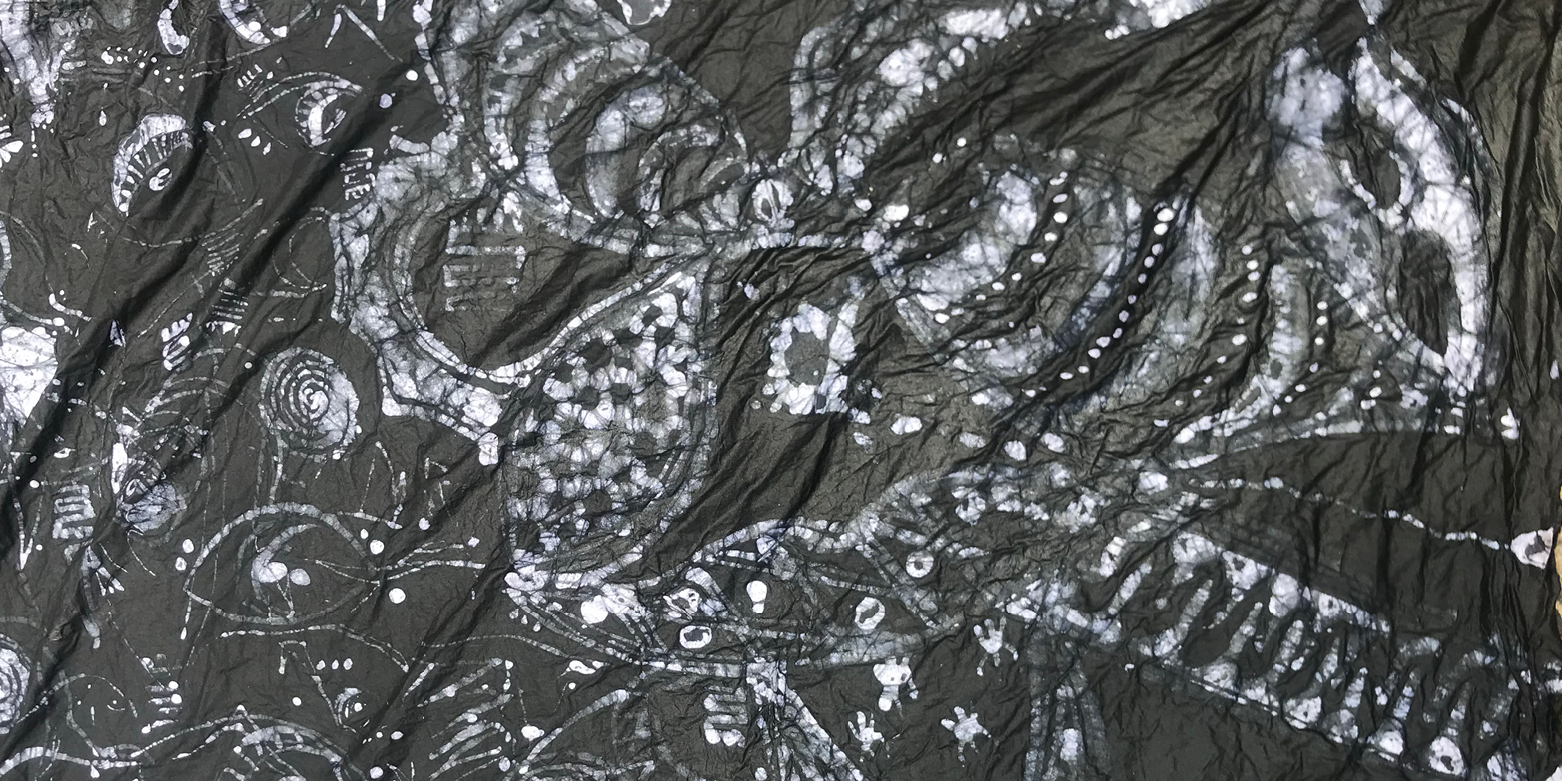 This batik was made during the workshop, using hot wax and chemical blue dye.
This batik was made during the workshop, using hot wax and chemical blue dye.
Laeïla had the opportunity to interview Adegun Adesoye Olalekan, an expert in traditional dyeing methods. Through this encounter, she acquired techniques that may enable her to utilize fabric as a medium for mapping the dissemination of Yoruba culture in the Americas.
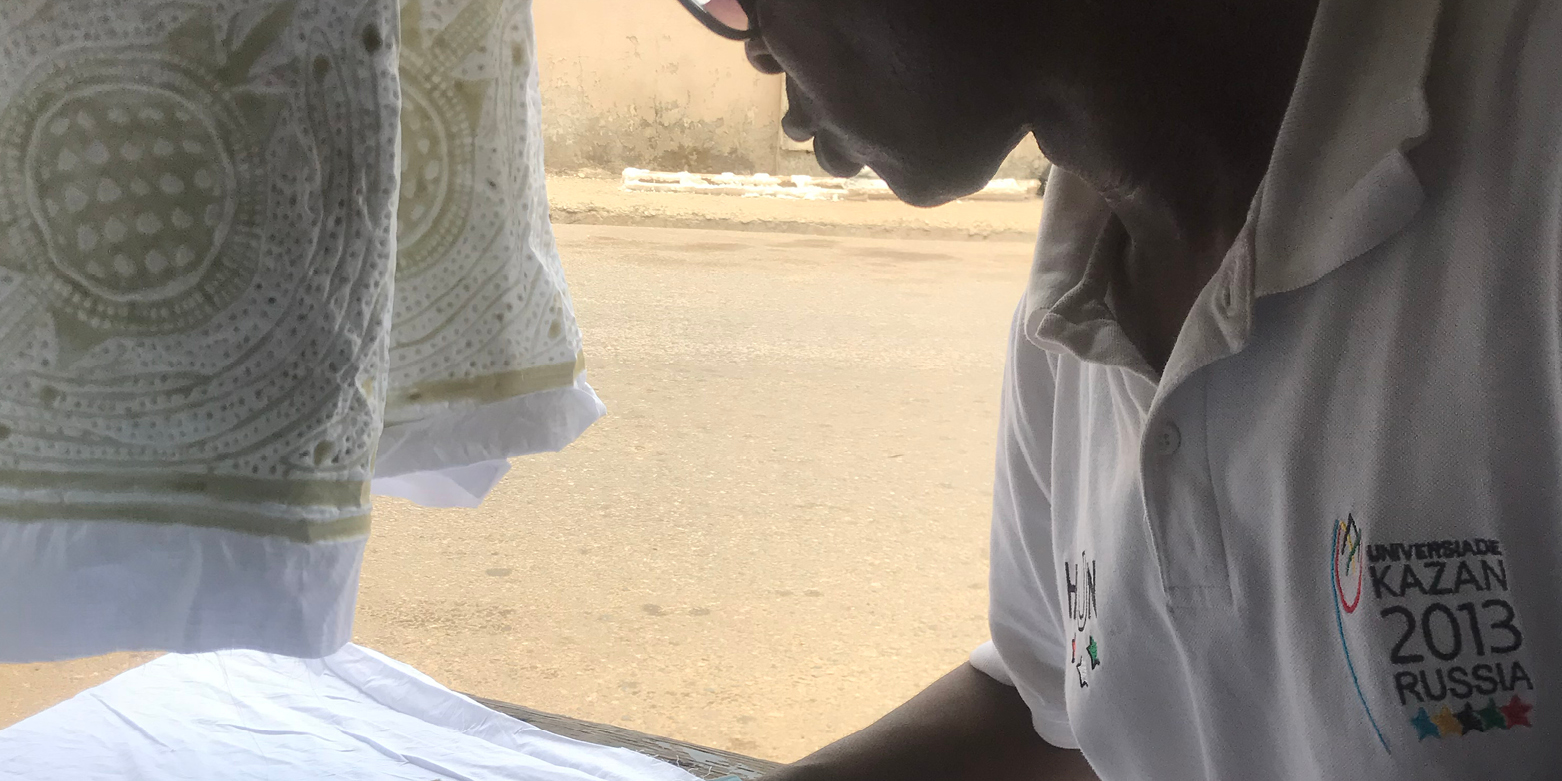
Adegun Adesoye Olalekan has been dyeing fabrics for almost four decades. He uses both chemical and natural dye, and masters batik techniques as well as indigenous traditional dyeing techniques such as Adire. He revealed that in order to make a 'Yemoja adire', you have to draw 28 different designs on the fabric.
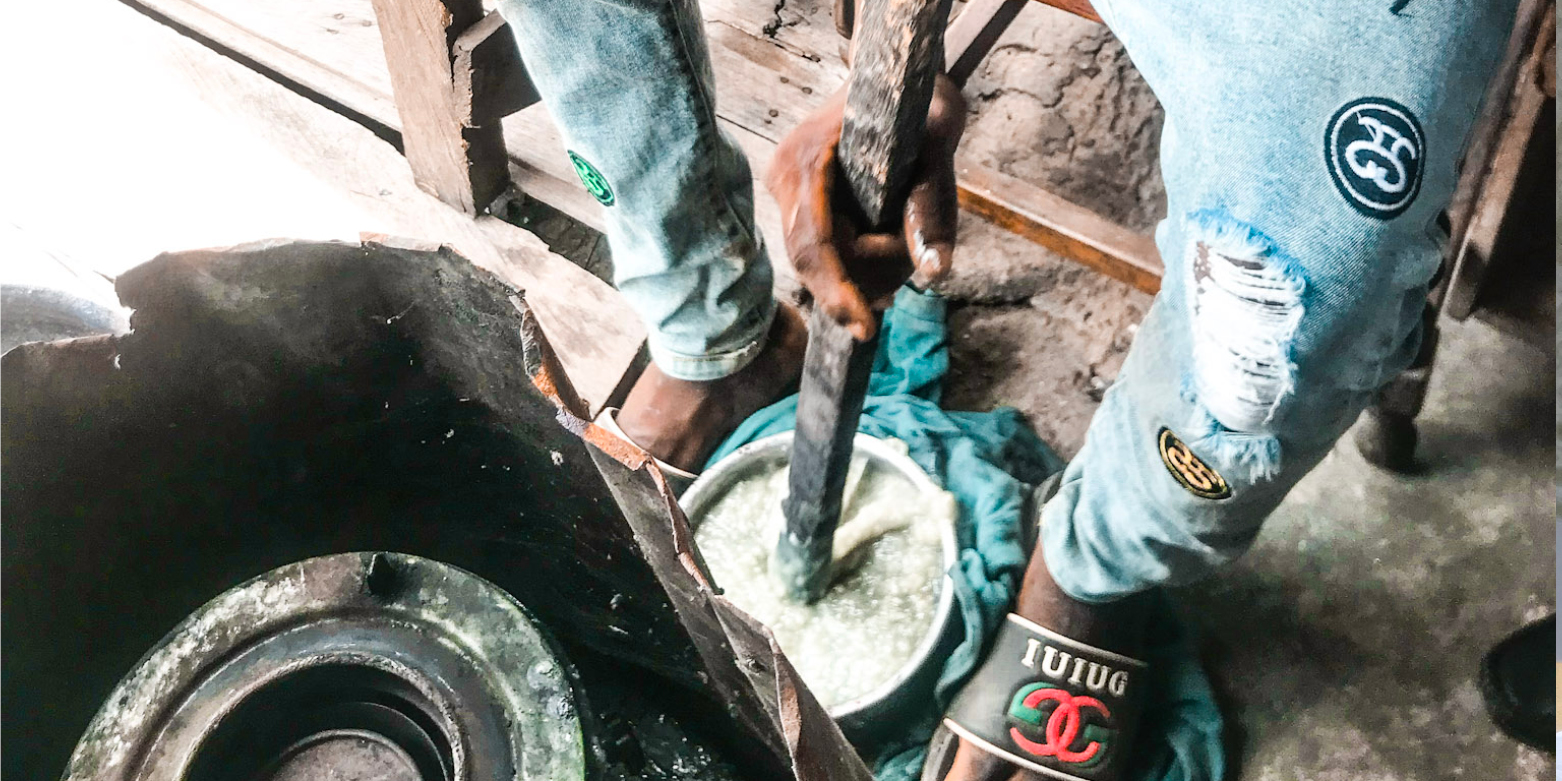 Olalekan's son, Adewale, is making a cassava paste used to draw designs on the fabric, as part of traditional adire techniques.
Olalekan's son, Adewale, is making a cassava paste used to draw designs on the fabric, as part of traditional adire techniques.
Laeïla's research trips in Lagos, with rich encounters and immersive experiences will contribute towards her advancing research on orisha spirituality.
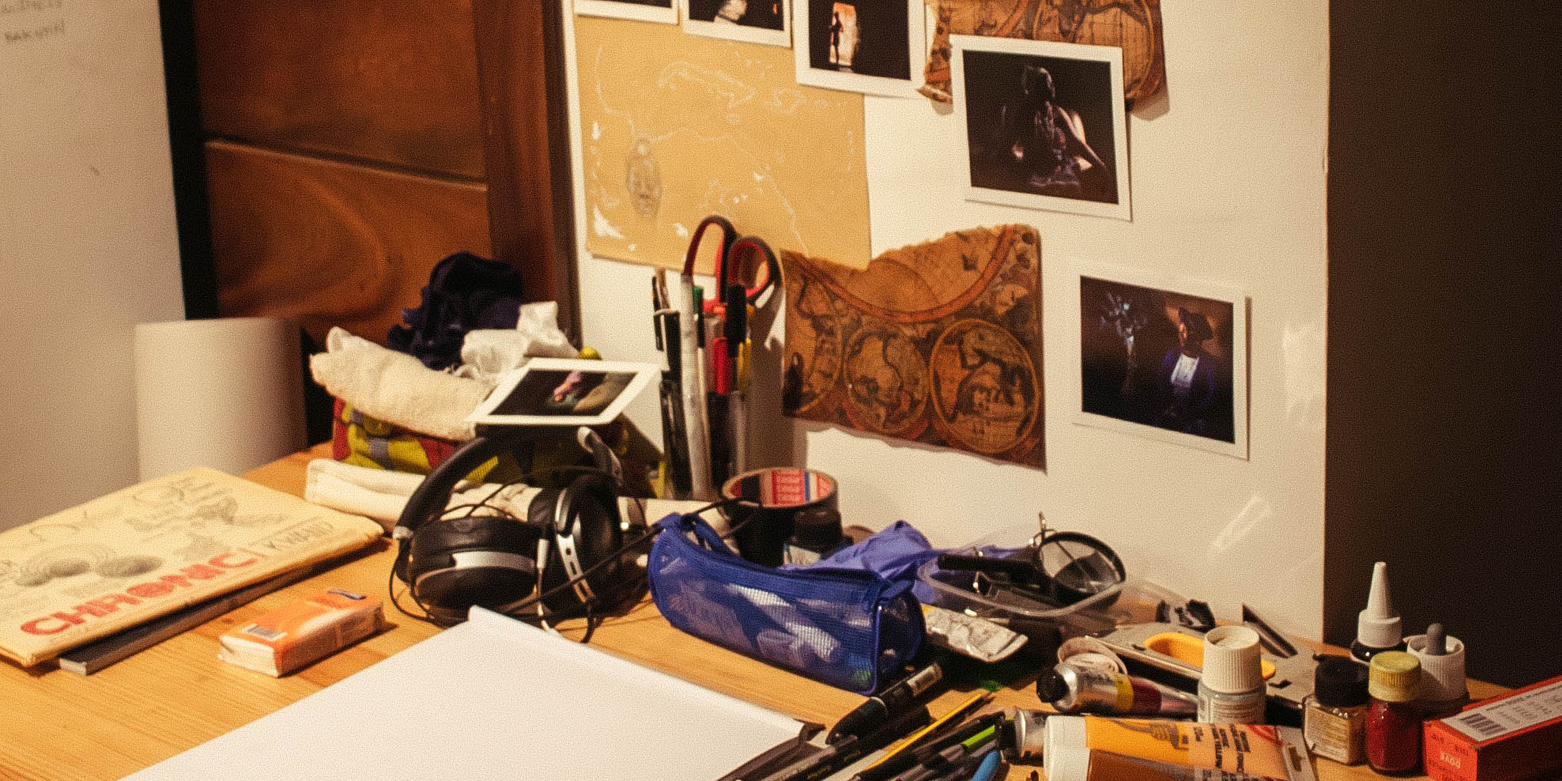
A close-up of Leila's research/studio setup during her residency at G.A.S. Lagos
In addition to her travels, during her residency, Laeïla engaged in various activities, including an exclusive event at G.A.S. for prominent stakeholders in the Lagos art community. She conducted guided tours of her studio for the guests, providing them with valuable insights into her artistic process and ongoing work.
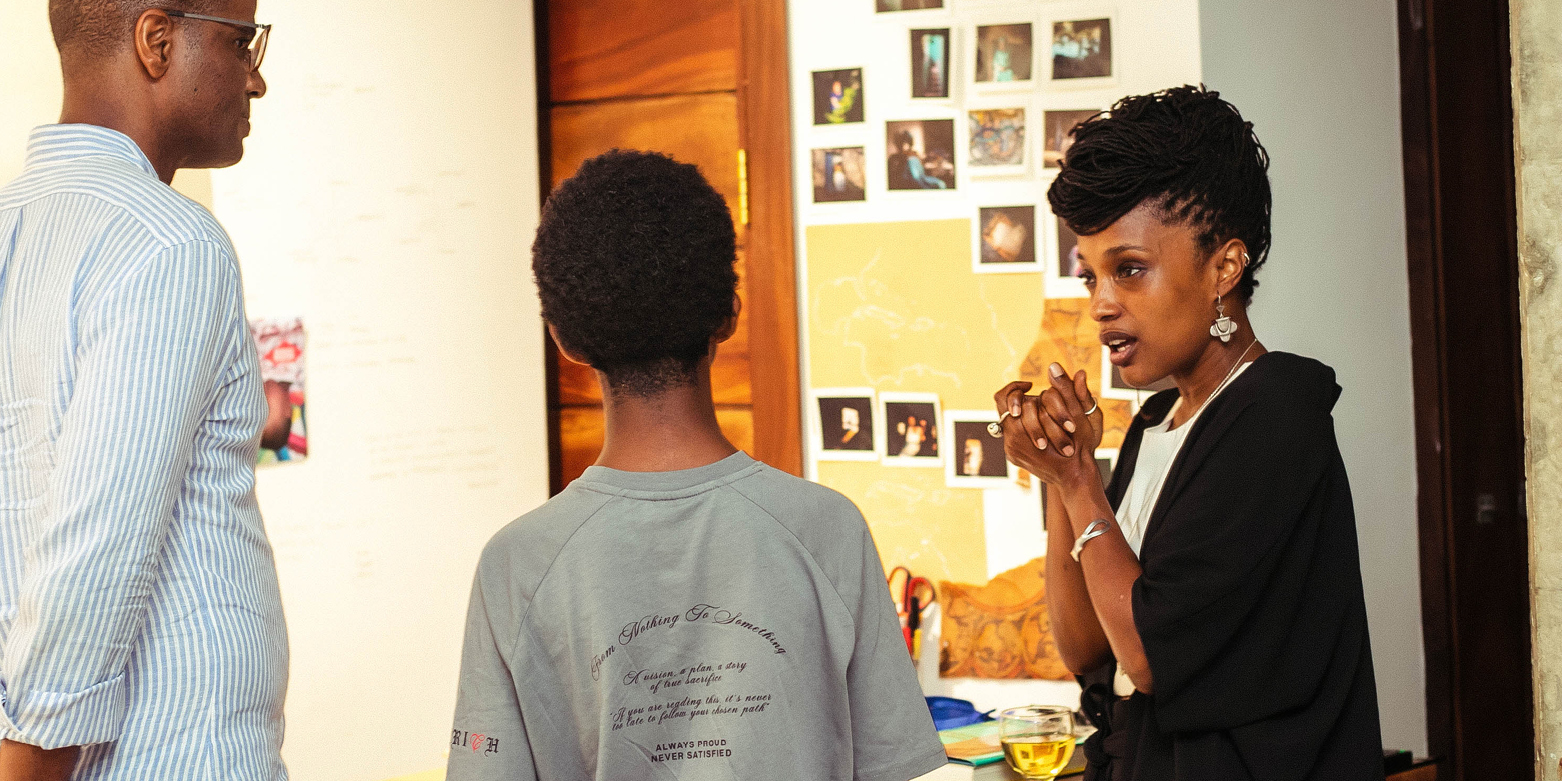 Guided studio tour during the exclusive event at G.A.S.
Guided studio tour during the exclusive event at G.A.S.
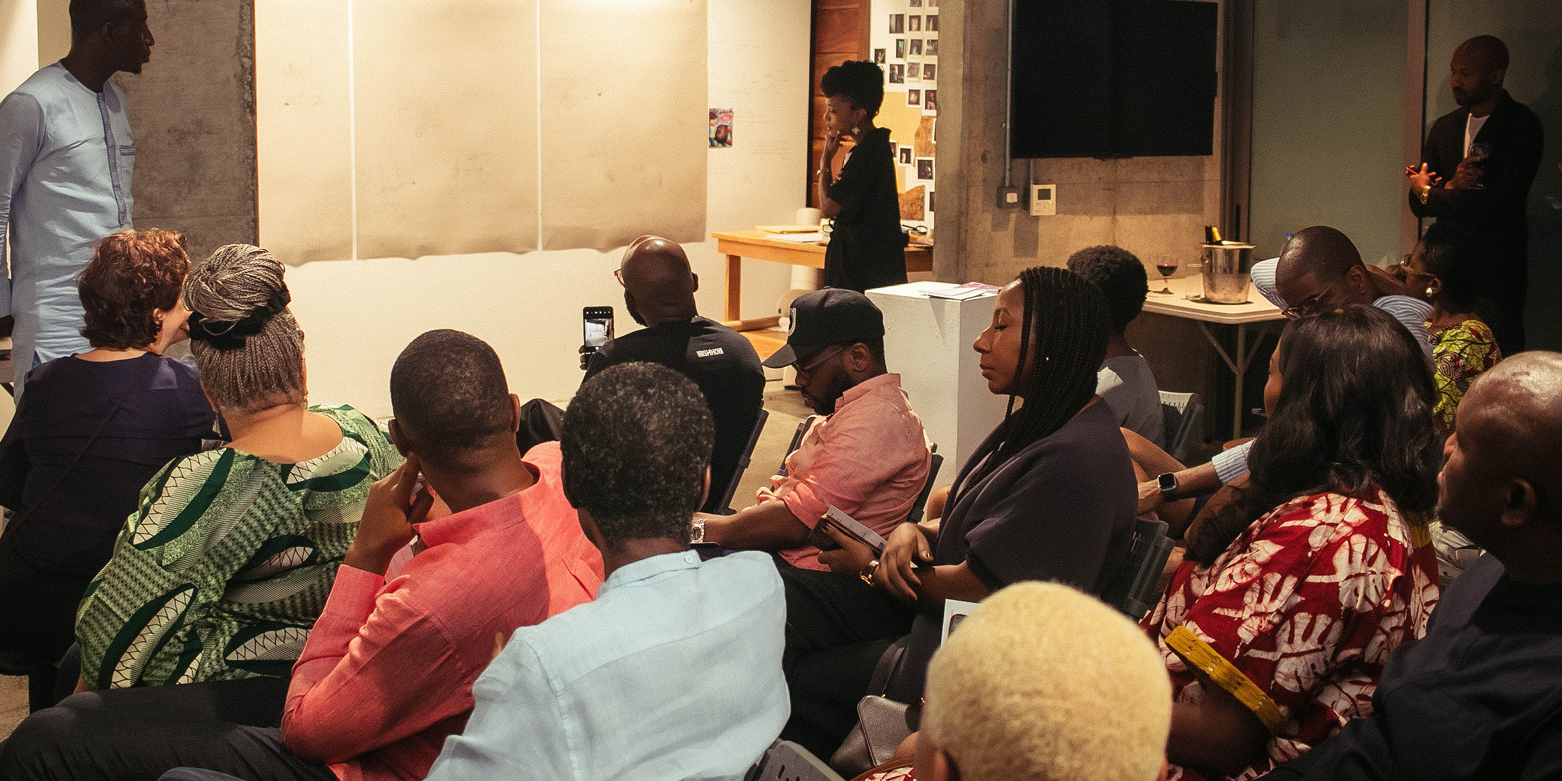 Leaïla's presentation at the exclusive event at G.A.S.
Leaïla's presentation at the exclusive event at G.A.S.
Additionally, she commenced a new project titled Going Under, which explores the mysteries of the subconscious and our coinhabitants within that liminal space. This series delves into the depths of the mind during sleep, seeking to unravel its secrets and shed light on our nocturnal wanderings.
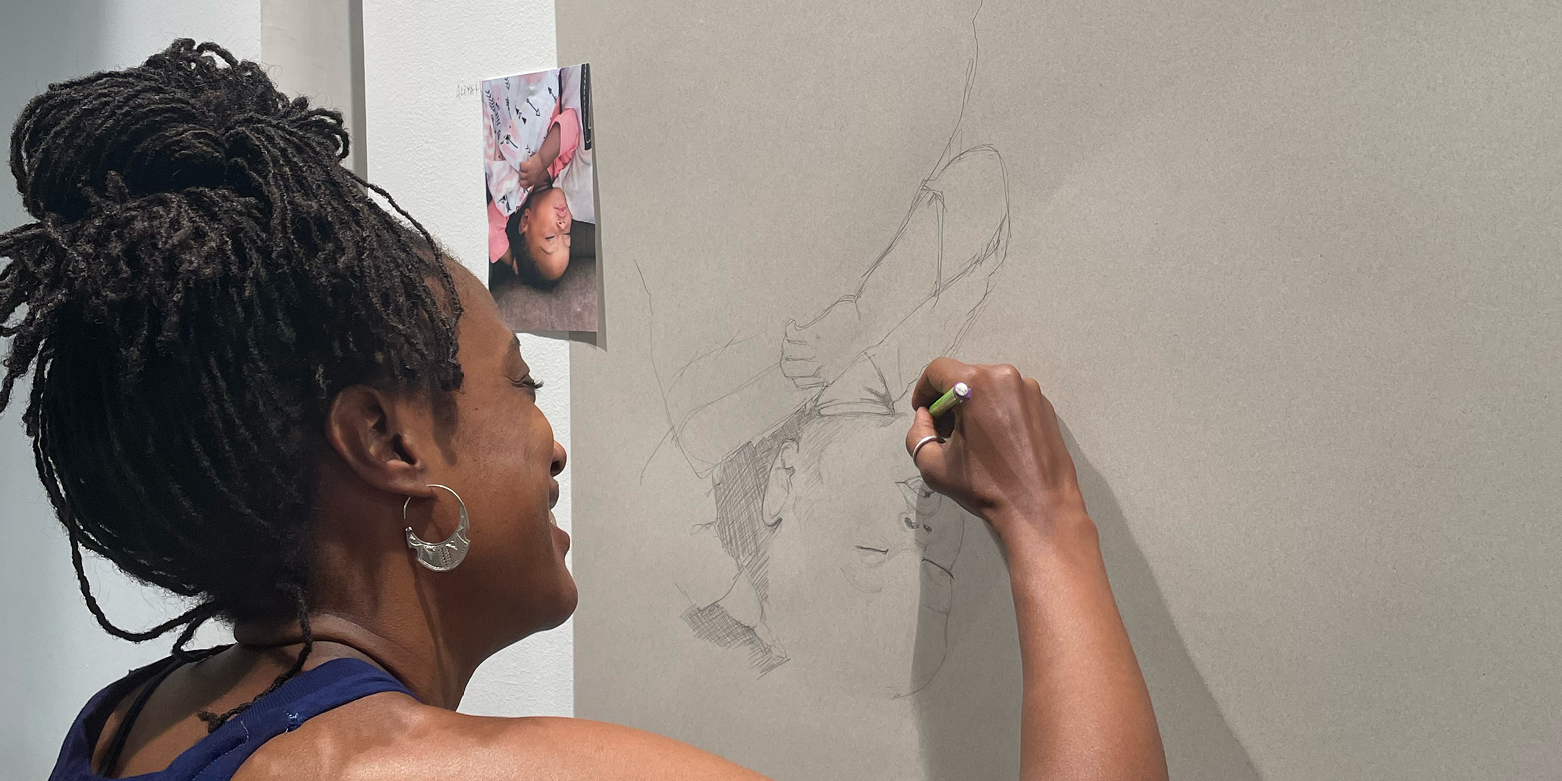 Leaïla at work in her studio space at G.A.S. Lagos. WIP: Going Under.
Leaïla at work in her studio space at G.A.S. Lagos. WIP: Going Under.
Laeïla's engagements throughout this period encompassed a diverse range of activities. Networking, research, and exploration became integral components of her journey. She fostered connections with like-minded individuals, expanding her professional circle and opening doors for potential collaborations. Extensive research further enriched her understanding and provided her with invaluable insights, fueling her creative endeavours.
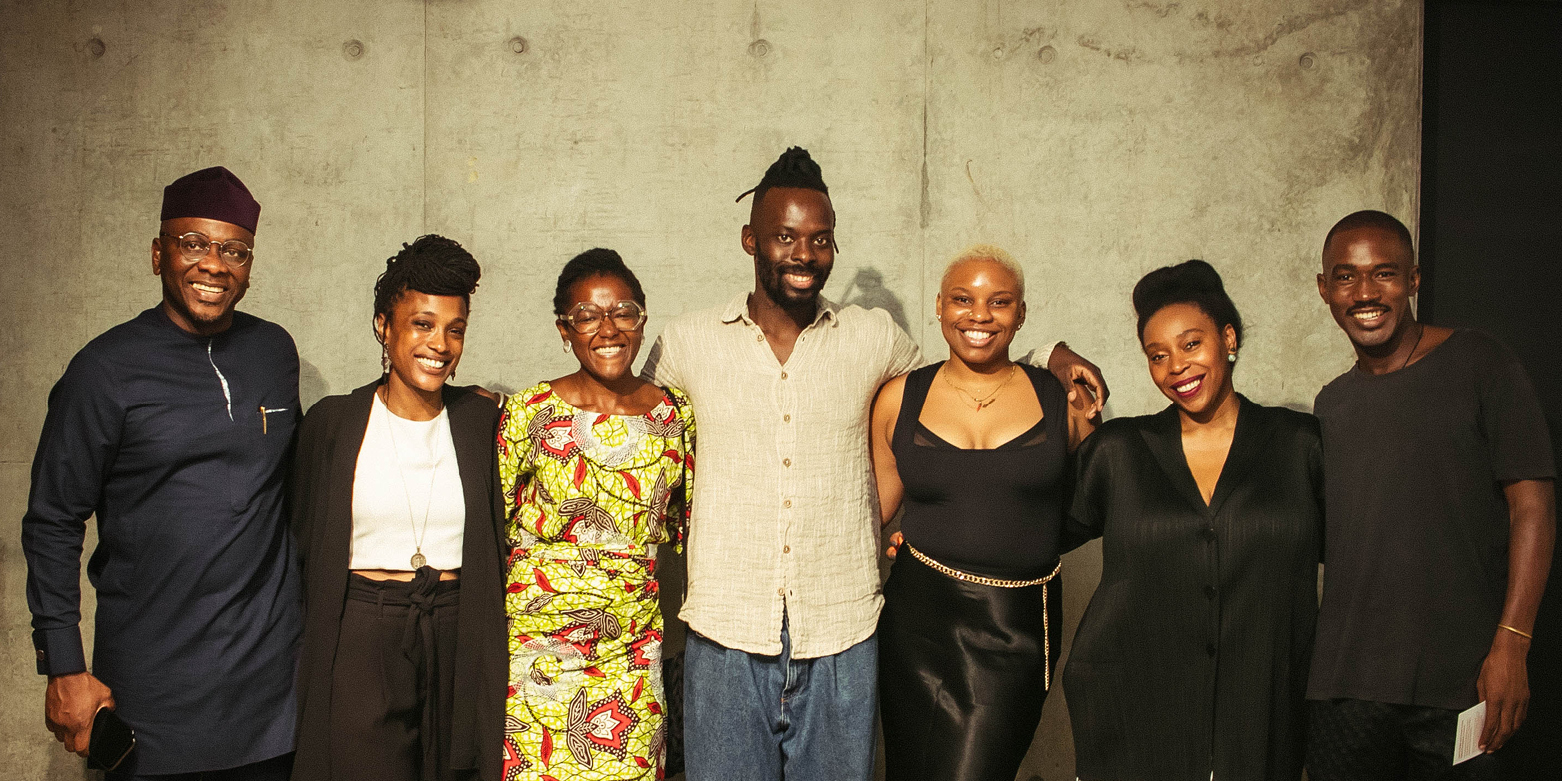 Leaïla with fellow residents and G.A.S. Directors. L-R Niyi Adenubi, Leaïla Adjovi, Temitayo Ogunbiyi, Tunji Adeniyi-Jones, Chiizii, Ugoma Ebilah, Tobi Onabolu
Leaïla with fellow residents and G.A.S. Directors. L-R Niyi Adenubi, Leaïla Adjovi, Temitayo Ogunbiyi, Tunji Adeniyi-Jones, Chiizii, Ugoma Ebilah, Tobi Onabolu
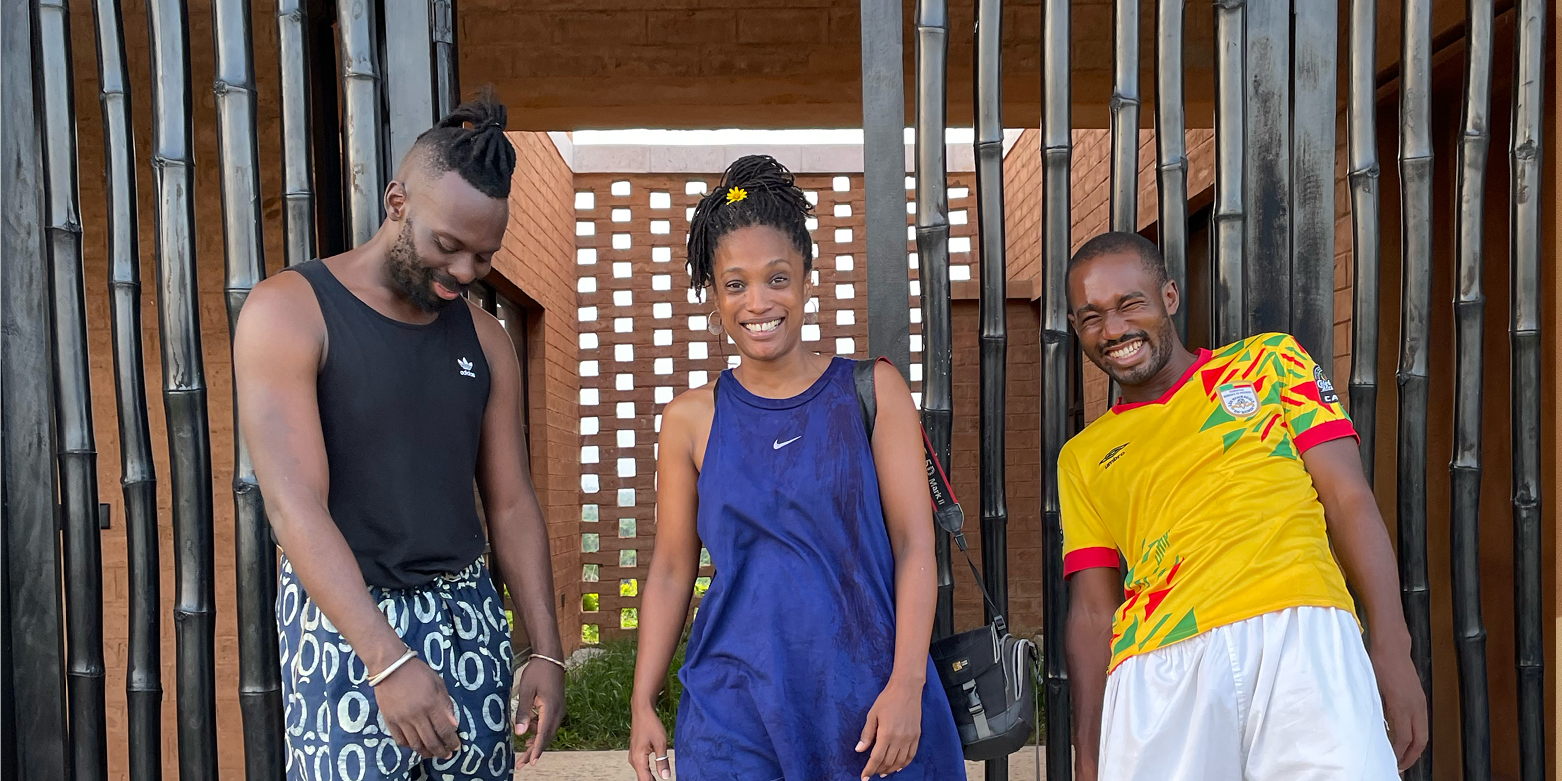 Leaïla and fellow residents at the G.A.S. Farm House in Ikise-Ijebu
Leaïla and fellow residents at the G.A.S. Farm House in Ikise-Ijebu
This edition of the G.A.S. Fellowship Award is generously supported by Still Earth Holdings and our Residency Patrons.
